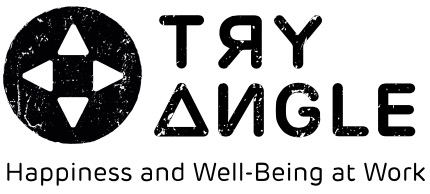Do you know the feeling when you seem to be racing against the clock? And no matter how hard you run, you rarely if ever seem to win? Your to-do list is too long compared to what time you have available. You are getting the impression that you are not doing enough. You feel that you have been less productive than you think you should have been. Every minute needs to be useful, and you have tried so hard to do this, but still, it doesn’t seem to be enough. If only there were thirty-six-hours in a day…
Does this sound familiar? Then you may suffer from time anxiety.
What is time anxiety?
Time anxiety is the terrible feeling that you never have enough time and aren’t doing enough with the time you do have. Where does this feeling come from?
Our relationship with time develops through our childhood. As children, time isn’t really important for us. From our perspective, the days seem long and endless and are filled with play and learning. It’s only as we become teenagers that school, sports, hobbies and friends are starting to fill up our schedule. We are also often told that wasting time might ruin our future. As adults, time becomes scarce as we have a lot of serious responsibilities demanding our attention, so we try to control time to the best of our abilities.
According to ironic process theory, a psychological process, a deliberate attempt to suppress certain thoughts make them more likely to surface. So, the more we worry about something, the bigger the problem gets. Accordingly, time will feel more limiting as we focus more on how limited it is. It also means trying to stop time anxiety is not an easy process.
Three kinds of time anxiety
So, simply put, time anxiety is the fear that you are wasting your time. It can occur in everyday life, in either a private or professional setting, but also can relate to larger life goals. It can manifest itself in three ways: present, future and existential time anxiety.
Fear of the present time is perhaps the most familiar form. These kind of worries have to do with the daily stress of having to rush through your tasks as fast as possible to reach the envisioned goal. The aspects mentioned in the introduction of this article are very typical for present time anxiety. This tension results in a feeling that you have too much to do and not enough time to do it, and not using your time wisely is a huge mistake. Besides the endless to-do lists, these are also typical symptoms: not having time to relax because every moment has to be put to good use, a feeling that you have to keep so many balls in the air at the same time, and no matter what you do, you have the impression that you are failing and falling short. Haste makes waste…
You may also suffer from future time anxiety, which relates to the uncertainty of time. You think in terms of “what if” and panic about things that are not necessarily under your control. What if you make wrong choices? What if something happens? What if it’s too late to change your career? What if you haven’t saved enough for retirement? These may all be legitimate questions, but fixating on these themes creates unrest. Living in fear for a long time may damage your health, your quality of life and your well-being.
Finally, existential time-anxiety. This is the concern for permanently lost time, which also plays a role in the other forms of time anxiety. However, existential fear is more clearly linked to loss. It is most obvious when we think of death and face the finality of our own lives and how that influences our life goals.
In conclusion, time anxiety is more than just an occasional stressed-out moment in your workday. It can cause you to procrastinate on important tasks, and can even lead to burnout. The issue is, time can never be controlled. So how can you learn to feel good about yourself and your work and not worry about the limited aspect of time?
How to fight time-anxiety
The code to help you crack time-anxiety can be summarized as “attention management”. By learning to focus on the aspects where you can still have an impact, you are able to control pointless time obsessions.
Use these tips to help deal with time anxiety:
- Acknowledge your relationship with time
The first step to dealing with anything is recognizing that you are doing it. Furthermore, time exists. You can’t stop time from moving or slow it down. All you have control over is what you do now and what you are going to do in the future.
Time anxiety grows stronger when we either completely ignore it or try too hard to manipulate the ways that time impacts our day. Accepting the truths about time might seem like a silly first step but it is the best way to start moving forward.
- Get it out of your system
If you do not yet have a diary, start one now. Write down what you like to do, what you are proud of, what you value most in yourself and in others. Think about what time well spent means to you. What does a good day look like? What kind of tasks bring you into a state of flow? Think about your energy givers and energy drains. Pinpoint what your talents are. What hobbies or activities do you enjoy in the moment? Not just because they help you ‘turn off’ your mind?
Tip: To help you get started, you can list activities under the categories from Darius Foroux’s ‘Six Spoke’ theory.
This way, you will create a valuable framework to fall back on whenever you feel anxious or overwhelmed by obsessive thoughts about time. It’s a good starting point for further experimentation to find what helps to relieve the anxiety. Keep a record in your journal of what works.
- Make time to connect
You don’t have time. You make time. Make space for the things that matter and prioritize them. Look at your flow and energy boosting activities and decide how they will realistically fit into your day. Thinking through your day like this (and some people create successes by planning time slots and using an actual diary), can also help cut out the time-wasters and distractions that add to your time anxiety and instead do more things that make you feel good.
Make sure that “connection” is high on your list of priorities. Connection starts with yourself. Meditation, yoga and mindfulness are all important exercises to increase insights into yourself and your needs. Regular practice can improve your ability to recognize when something is not quite right, which in turn helps you identify anxiety triggers so you can work through them better. They are also great for refocusing and calming yourself. Moreover, these techniques can be done just about anywhere.
Also, regularly make time to connect with the VIPs in your life who give you your positive energy. Don’t forget about your colleagues! Bubbly interactions with help recharge your batteries and a healthy mind in a healthy body makes sure you have less room for anxiety.
- Redefine the situation
Again, the key to overcoming time anxiety is to re-evaluate what is most important. Awareness of the activities you are investing your time in and how that (mis)matches with your priorities is an important step towards being able to make different choices.
Furthermore, understanding the planning fallacy and that we have less time than we think is another important clue. For example, most of us are bad at planning and overestimate what they can actually ‘get done’ in an 8 hour work day. Research shows that there is at best 2.5 hours of truly productive time available to us. Not only do we spend time on meetings, email, chat, video calls, we also need connection time with coworkers and breaks, just as processing and mind-wandering time to make our productive time more efficient. Next to this, sub-optimal time spending like multitasking or interruptions can secretly steal our focus and flow and also use up our time.
Being realistic about what you can do with the time you have can be a gamechanger to your planning and how you feel about your time spent. Using a more realistic time frame to plan for your carefully chosen priorities can help you not to chase the impossible but feel more contented with what you actually realized versus what you planned.
An interesting exercise to look at your activities is the “Do I have to do this now?” question.
Interestingly, not only your actual and conscious choice but also your view (and mindset) on what you are choosing to do matters. For example, if you are aware of the value of self-care and resting your mind and body, you won’t feel guilty about taking a break because you know the positive impact on your energy levels and the efficiency of your next productive timeslot.
- Practice being a ‘Satisficer’ instead of a ‘Maximiser’
An often overlooked aspect of time anxiety is how we think about the future. Many of us stress out – and lose a lot of time in the process – because they want to make the best choice possible. However, there is no such thing as a ‘perfect’ decision.
Improve your decision-making skills and practice being one of these two types as identified by psychologists:
– Maximizers strive to make a choice that will give them the maximum benefit later on.
– Satisficers make choices according to their set of current criteria and nothing more.
Time anxiety may never really go away, but you can learn to deal with it in a more comfortable way so that it no longer dominates your life. Learning to recognize your habits and your value(s) is the best way to keep it under control. Overcoming time anxiety comes down to awareness, understanding, and action. Step by step!
Sources:
- Future of Work Insights https://fowinsights.com/insights/blogs/time-anxiety-tips-overcome/
- https://blog.rescuetime.com/time-anxiety/
Want to get to work?
Discover our training on time- and energy management
Time-management is a challenge to a lot of people. It’s more about self-awareness than about applying tips and tricks. How do you use your time? Do you know when you are most likely to be productive? How can you make your energy boosts stronger and multiply them? This training helps participants discover to use their energy levels in a smart way to get more done in less time.
An interactive workshop with techniques and exercises, tips and tricks to increase your productivity. We will be exploring the attention curve, the effect of healthy breaks, and other tips that optimize your time and energy investment.






